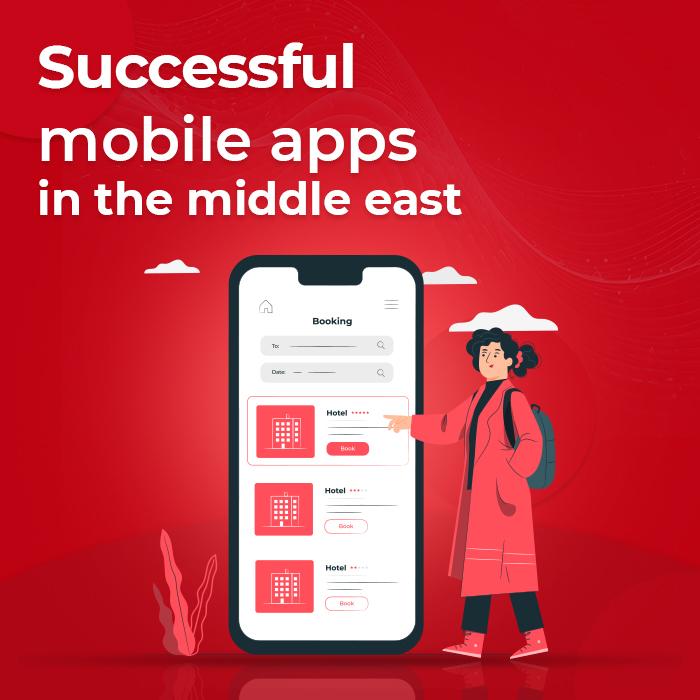The Middle East is full of mobile app innovation, with startups and enterprises launching applications that cater to unique regional needs. In this blog post, we’ll explore some of the most successful mobile apps in the Middle East, analyzing their growth strategies and what made them stand out.
1. Careem:
Overview:
Founded in 2012 in Dubai, Careem started as a transportation service and later expanded to food delivery and payments. It was then acquired by Uber in 2020 for $3.1 billion.
Success Factors:
- Localization: Careem tailored its services to the Middle Eastern market by offering cash payments, multiple vehicle options, and region-specific customer support.
- Changed App Strategy: It evolved beyond transportation, integrating food delivery and digital payments under the Careem Pay ecosystem.
- Strategic Expansion: Careem rapidly expanded into 100+ cities across the region, using the advantage of partnerships with local businesses and government support.
The Impact this app made:
Careem’s acquisition by Uber opened doors for more tech investment in the Middle East.
2. Talabat: Food Delivery
Overview: Talabat, founded in Kuwait in 2004, is one of the most dominant food delivery platforms in the Middle East.
It was acquired by Delivery Hero in 2016 and operates in multiple countries, including the UAE, Saudi Arabia, and Egypt.
Success Factors:
- Early Market Entry: Being one of the first online food delivery services in the region gave Talabat a competitive edge.
- Strong Network: The company built an efficient system that ensures quick delivery times.
- Diverse Offerings: Beyond restaurants, Talabat expanded into grocery and pharmacy delivery, increasing customer retention.
The Impact this app made:
Talabat’s success paved the way for the rapid growth of the food delivery industry in the Middle East, attracting competitors like HungerStation and Jahez.
3. Noon: The Middle Eastern E-Commerce
Overview:
Noon, launched in 2017 by Dubai billionaire Mohamed Alabbar, is one of the largest e-commerce platforms in the region.
It competes directly with Amazon and Souq (acquired by Amazon in 2017).
Success Factors:
- Local Warehousing: Noon invested heavily in warehouses and logistics to ensure fast deliveries.
- Competitive Pricing: With strategic partnerships and bulk purchasing, Noon offers competitive pricing on thousands of products.
- Diverse Product Range: The platform includes electronics, fashion, groceries, and even home services.
The Impact this application made:
Noon strengthened local e-commerce infrastructure and provided an alternative to global giants like Amazon, encouraging more regional businesses to embrace online retail.
4. STC Pay: Transforming Digital Payments
Overview:
STC Pay, launched by Saudi Telecom Company (STC) in 2018, is one of the most successful fintech apps in the Middle East. It offers digital wallets, remittances, and bill payments.
Success Factors:
- Integration with STC Services: Customers could easily top up mobile balances and make payments using STC Pay.
- Regulatory Support: Saudi Arabia’s Vision 2030 initiative supported fintech development, leading to increased adoption.
- Partnerships with Banks: STC Pay collaborated with local and international financial institutions to facilitate easy transactions.
The Impact this app made:
The app accelerated the digital payments shift in Saudi Arabia, influencing the rise of other fintech solutions like Tamara (buy-now-pay-later) and PayTabs.
5. Anghami: The Middle Eastern Spotify
Overview:
Anghami, launched in 2012 in Lebanon, is the first legal music streaming platform in the Middle East and North Africa (MENA). It went public on NASDAQ in 2022.
Success Factors:
- Catering to Arabic Music Lovers: Anghami focused on Arabic music and exclusive regional content, differentiating itself from Spotify and Apple Music.
- Freemium & Subscription Model: It offered free streaming with ads and a premium ad-free experience.
- AI-Driven Personalization: The app leveraged AI to recommend music based on users’ preferences.
The Impact this app made:
Anghami’s success proved the success potential of regional streaming platforms and inspired the growth of local content-focused startups.
What We Learn from These Success Stories:
- Localization is important: Apps that tailored their services to regional preferences, such as offering cash payments or Arabic-language support, gained a strong exposure.
- Strategic Partnerships Drive Growth: Collaborations with local businesses, governments, and investors helped apps scale rapidly.
- Diversification: Expanding into multiple services increased customer engagement and retention.
- Strong Logistics & Operations Matter: For e-commerce and delivery apps, a well-structured logistics network was crucial to success.
- Fintech & Digital Payments are rising: The growth of apps like STC Pay is shifting toward a cashless economy in the region.
Conclusion
The Middle East’s mobile apps are growing, with local entrepreneurs and investors driving innovation across various industries. Whether in transportation, e-commerce, fintech, or entertainment, these successful apps highlight the region’s potential. With continued investment and government support, Middle Eastern startups will scale globally.
Have an app idea? Contact us now and lets get started



